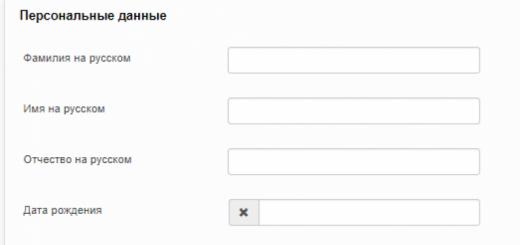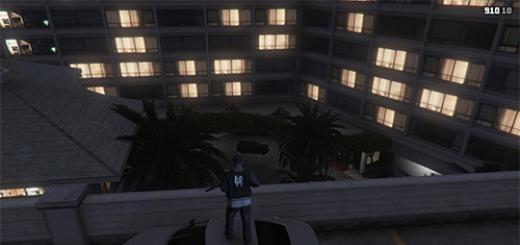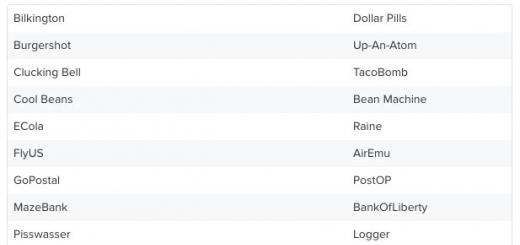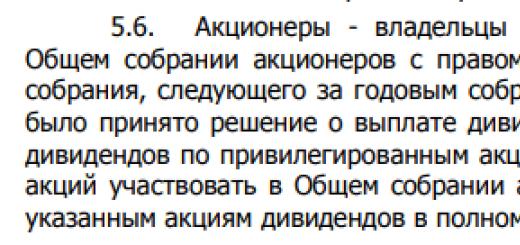From May 1, 2018, the minimum wage was increased to the level living wage. We will tell you what the new minimum wage has become in Russia as a whole and in each region separately, as well as how this has affected payments to employees.
The minimum wage from May 1, 2018 in Russia increased to 11,163 rubles. This is 100% of the subsistence level of the population involved in the work process for the 2nd quarter of 2017. The increase is planned in several stages. The next one is expected in early 2019. The task of gradually improving the living standards and incomes of the working people was set by the President of the Russian Federation Vladimir Putin to the Government of the Russian Federation.
From this article you will learn:
New minimum wage in Russia from May 1, 2018
As follows from the law of 07.03.18 No. 41-FZ, the minimum wage from May 1, 2018 in Russia is equal to 11 163 rubles per month. This is higher than the previous value by 1674 rubles. The constituent entities of the Russian Federation can set the regional minimum wage themselves, and in some cases it was set higher than the federal one ( see table -). However, the regions should remember that if the regional minimum wage is below the federal value, then the federal minimum wage must be adhered to, otherwise they will be fined up to 50 thousand rubles (part 6 of article 5.27 of the Code of Administrative Offenses of the Russian Federation).
The next stage of the increase in the minimum wage is expected from January 1, 2019. The minimum wage was equalized with the subsistence minimum for the 2nd quarter of 2018 (Article 1 federal law dated 19.06.00 No. 82-FZ).
| county | Region | minimum wage by region from May 1st 2018 |
Law/Regional Agreement |
|---|---|---|---|
| Central federal district |
Belgorod region |
11 163 rubles |
Tripartite agreement between the regional association of trade union organizations, associations of employers and the Government of the Belgorod region for 2017-2019 |
| Bryansk region | 11 163 rubles |
Regional agreement in the Bryansk region for 2018 dated 08.12.2017 |
|
| Vladimir region |
11 163 rubles |
||
| Voronezh region | 11 163 rubles |
Tripartite agreement for 2017 - 2019 dated 01.02.2017 |
|
| Ivanovo region | 11 163 rubles | Agreement on the regulation of social and labor and related economic relations between the government of the Ivanovo region, the regional association of organizations of trade unions, the regional association of employers for 2015-2017 dated December 26, 2014 No. 109-s | |
| Kaluga region | 11 163 rubles |
Kaluga Regional Tripartite Agreement between the Territorial Union of Trade Union Organizations "Kaluga Regional Council of Trade Unions", regional associations of employers and the government of the Kaluga Region for 2017-2019 |
|
| Kostroma region |
For commercial organizations - in the amount of the subsistence minimum working-age population regions, but not less than 11,163 rubles; For budgetary organizations - 11,163 rubles. |
Agreement on social partnership in the sphere of labor for 2017-2018 dated 15.01.2014 N 3-d |
|
| Kursk region |
11 163 rubles |
Agreement on the minimum wage in the Kursk region for 2018 dated 12/15/2017 |
|
| Lipetsk region |
For non-budgetary organizations in the amount of 1.2 of the subsistence level of the able-bodied population for the 4th quarter of the previous year, but not less than 11,163 rubles. For budgetary organizations - 11,163 rubles |
Regional trilateral agreement for 2018-2020 between the administration of the Lipetsk region, the Federation of trade unions of the Lipetsk region, employers' associations of the Lipetsk region dated 12/27/17; Regional agreement on the minimum wage in the Lipetsk region for 2018-2020 dated 12/27/17 |
|
| Moscow region | 14 200 rubles |
Agreement on the minimum wage in the Moscow region dated 01.03.18 No. 41 |
|
| Oryol Region | 11 163 rubles |
Regional agreement on the minimum wage in the Oryol region dated 12/29/17. No. 84 |
|
| Ryazan Oblast | 11 163 rubles |
Regional agreement on the minimum wage for 2018 dated 12/19/17 No. 195-1; Art. 1 of the Law No. 82-FZ dated 19.06.2000 |
|
| Smolensk region | 11 163 rubles |
Art. 1 of the Law No. 82-FZ dated 19.06.2000 |
|
| Tambov Region | 11 163 rubles |
Regional agreement on the minimum wage in the Tambov region (Decision of the Tambov regional tripartite commission for the regulation of social and labor relations dated December 21, 2017 No. 12); |
So the problem of poverty is not solved
Initiatives to accelerate the equalization of the minimum wage (SMW) with the subsistence minimum began to be presented by the authorities almost as the main achievement of their social policy. Here, people must conclude, this is the real concern about how the people live. Here it is, evidence of the achievements of the authorities' tireless attention to the standard of living of the working people.
Well, the measure really, it would seem, is wonderful. Can there really be any doubt? They can, and I have them.
But first, about why suddenly at the very top they were concerned about solving the problem of raising the minimum wage. The first reason, as they say, is on the surface: the upcoming presidential elections. Let me remind you that the law on a phased increase in the minimum wage to the subsistence minimum was adopted at the end of last year, 2017: first, from January 1, 2018, the previous minimum wage (7,800 rubles per month) was raised to 9,489 rubles per month, which amounted to 85% of the subsistence minimum; and from January 1, 2019, the minimum wage and the subsistence minimum were to be equal. However, already in the current January, the authorities made a different decision: without waiting for January 1, 2019, to equate the minimum wage with the subsistence minimum from May 1, 2018, as a result of which the minimum wage should reach 11,163 rubles per month (the subsistence minimum in II quarter of 2017).
Many, probably, not without reason, will say: well, let all these decisions be connected with the elections, if only the people would benefit from this. But not only the presidential elections in March 2018 pushed the authorities to such a decision. There was another important reason. The past year 2017 was the fourth year in a row when official statistics recorded a drop in real disposable money incomes of the population. Imagine: from 2014 to 2017, the standard of living of the population has been continuously declining: in total, real incomes have fallen by about 11% over these years. That is, the crisis, as the authorities say, has long passed, and the economy is “gaining momentum”, and the standard of living of people is falling. The question is: who needs such declared economic growth and why, if the real incomes of the population are falling? For example, this is completely incomprehensible to me, because I am convinced that an economic recovery is not needed without an increase in the incomes of the population.
What should the authorities do with these "scissors": the economy seems to be growing, while the population is getting poorer? Here is the solution: we will raise the minimum wage to the subsistence minimum, and then we will increase it even faster... And no one will pay too much attention to the fall in real incomes of the population. But if in terms of propaganda the problem really seems to be being solved, then in terms of content, in essence, it is unlikely.
By the way, the first proof of the validity of such doubts is that the minimum wage has been raised before, but the population's real disposable money incomes have still fallen. For example, from July 1, 2016, the minimum wage was increased to 7,500 rubles per month, and from July 1, 2017 - to 7,800 rubles per month. But this did not stop the decline in income.
The history of the issue is certainly important, but no less important is the analysis of what the current decisions will lead to. So, from May 1, 2018, the minimum wage will not be 9,489 rubles per month, but 11,163 rubles per month, that is, 1,674 rubles more. Does this mean that the 4 million people who, according to the authorities, today receive the minimum wage, will have their salaries increased by this amount? No, absolutely not!
Both before and now, many workers who officially receive the minimum wage actually have more. This is done for a simple reason. By officially setting minimum salaries for their employees (while actually paying much more “in envelopes”), employers save on social payments, which make up 30% of the wage fund.
That is, the arithmetic here is simple. The employer has, relatively speaking, 20 thousand rubles a month for each employee (together with social payments and income tax). It's one thing if he makes these payments from the official 9,489 rubles a month, and another thing if these are payments already from 11,163 rubles a month, and the rest will be paid "in an envelope." But employers do not have this extra money, and they will simply have to pay less “in envelopes”, that's all.
Of course, an ideal option is possible: the employer will find the necessary funds both to increase the minimum wage and to pay social payments, as well as in fact income tax. However, when evaluating such prospects, we must take into account the current financial condition of domestic companies, and in 2017 it turned out to be noticeably worse compared to 2016: financial results(profit minus loss) of Russian companies in January-October last year was, according to Rosstat, 5.3% less compared to the corresponding figure for the same period the year before last. Add to this the fact that in the fall of 2017, the number of bankruptcies in the Russian economy increased to a record level since the 2009 crisis.
When making decisions affecting the financial interests of enterprises, we simply have to take into account such data, and not just proceed from the highly controversial assertions that the crisis is over and economic growth has begun.
So, if you rely on numbers, and not on words, it becomes clear that the probability of various kinds of ideal options is clearly small. On the other hand, other options for the employer are quite visible, except for cutting wages for employees: reducing staff, transferring by 0.5 rates, or even more taking the business into the shadows.
Thus, it turns out that the state from this whole action to equalize the minimum wage and the subsistence minimum from May 1, 2018 definitely wins, receiving additional taxes; the employer, most likely, remains with his own; and workers risk losing because increased taxes on their hands will make them less paid or put on a part-time job, or even laid off. Statistically, this will slightly improve the situation with the dynamics of real disposable money incomes of the population, but in fact the situation will become even worse for many workers.
However, to the assertion that the state unequivocally benefits from this whole action, they can reasonably object to me that money will be required to increase the salaries of public sector employees - and, of course, they will be found. That is, the state will have to fork out additionally. This is true, as evidenced by the figures from the financial and economic justification for the federal law, which already from January 1, 2018 raised the minimum wage to 9489 rubles per month: the total cost of raising the salaries of public sector employees in 2018 will amount to 26.2 billion rubles , and a third of budget expenditures will be returned to budget system in the form of payment of insurance premiums to state off-budget funds and income tax on individuals. But we must also take into account that the private sector (to the extent that it will be affected) will also pay more social security payments and income tax. As a result, the return to the state will total approximately 35 billion rubles. It is easy to calculate that the state will indeed receive more than it spends, and for the increase in the minimum wage from May 1, 2018, such a statement is also fully true.
What other objections can there be to what has been said above? Well, for example, such: we really have millions of people who actually received 7800 rubles a month before January 1, 2018, and from the New Year they began to receive 9489 rubles a month - without any additional "envelopes". Let me remind you that we are talking about the monthly salary of an employee who has fully worked out the norm of working time as part of his job duties. That is, this is not a half-time, not a quarter-rate, and we are not talking only about the “naked” salary rate.
Of course, there are workers in Russia who really receive only the minimum wage, and they will benefit. But there are not so many of them - it is unlikely that their number goes into the millions, as official statistics record.
So what, the minimum wage does not need to be raised to the level of the subsistence minimum at all? We must, of course. But it is necessary to calculate the real consequences for the employees, for the sake of which all this seems to be done.
By the way, within the framework of this big problem, there is an interesting separate question: how to correctly calculate the cost of living. And then 11,163 rubles a month is, of course, a “powerful” minimum. I just want to say to those who install it: try to live a month on that kind of money yourself ...
Let me remind you that the task of overcoming poverty in the country was set in the President's Address to the Federal Assembly back in May 2003, that is, 15 (!) years ago. And it has not yet been resolved: in the country, according to official statistics, about 20 million people today live below the poverty line. Interestingly, in the same Presidential Address, in addition to the task of overcoming poverty, among the most important were also named: an increase in the gross domestic product twice and the modernization of the Armed Forces. The doubling of GDP by 2010 was also successfully failed. It turns out that two of the three most important tasks have not been exactly solved.
Raising the minimum wage to the subsistence level - a measure that is correct in principle - is unlikely to help much in solving the problem of overcoming poverty, because the required system is still missing, and the consequences of the decision taken have not been calculated.
The best in "MK" - in a short evening mailing list: subscribe to our channel in
The minimum wage in Moscow depends entirely on the size of the subsistence level of the able-bodied population. The Moscow authorities review it at least once every three months and decide whether to increase it or keep it at the same level. This procedure is provided for by the Moscow tripartite agreement on the minimum wage for 2016-2018 of December 15, 2015.
The increase in the subsistence minimum in the capital region is followed by an increase in the minimum wage. The new minimum wage comes into force on the 1st day of the month following the month in which the next minimum decree comes into force. But if the cost of living has not changed or even decreased, then the minimum wage in Moscow remains the same.
From January 1, 2018, the minimum wage in Moscow is 18,742 rubles (Decree of the Government of Moscow dated September 12, 2017 No. 663-PP). In December last year, the living wage in Moscow for the 3rd quarter was approved in the amount of 18,453 rubles (Decree of the Government of Moscow dated December 05, 2017 No. 952-PP). But this minimum is less than the minimum for the 2nd quarter by 289 rubles. Accordingly, the minimum wage in Moscow from January 1, 2018 will still be 18,742 rubles. Indeed, a decrease in the minimum wage due to a decrease in the subsistence minimum is not allowed (clause 3.1.1 of the agreement of 12/15/2015).
The minimum wage in Moscow from January 1, 2018 cannot be lower than 18,742 rubles. Therefore, capital companies need to raise the salaries of employees if the payments are lower.
You can refuse the regional minimum wage and stick to the federal minimum wage in 2018 in Moscow. A reasoned refusal must be sent within 30 calendar days from the date of the official publication of the Moscow government decree on the new subsistence level. The refusal must be sent to the Moscow Trilateral Commission at: 121205, Moscow, st. New Arbat, 36.
If the company has not abandoned the minimum wage and does not comply with it, a fine of 50 thousand rubles is possible (part 6 of article 5.27 of the Code of Administrative Offenses of the Russian Federation).
Minimum wage for the Moscow region from January 1, 2018
Since January 1, 2018, the minimum wage in the amount of 13,750 rubles has been in force in the Moscow Region (Agreement on the minimum wage in the Moscow Region dated November 30, 2016 No. 118). It is this minimum wage that is used by all employers in the region who, in January 2018, did not switch to the application of the federal minimum wage.
From January 1, 2018, the minimum wage in the Moscow region can increase only if a new regional agreement is adopted. So far, this document has not been approved.
For employers who have abandoned regional significance and switched to a federal one, the minimum wage in the Moscow Region since January 2018 is 9,489 rubles. The salary of employees cannot be lower. Otherwise, the employer will be held liable for violating the labor rights of employees. The penalty for this violation is provided for by Article 5.27 of the Code of Administrative Offenses of the Russian Federation. For organizations - from 30 to 50 thousand rubles.
Recall that companies in the Moscow region have 30 days to write a reasoned refusal from the regional minimum wage in favor of the federal one. Companies in the region should send a letter to the Ministry of Social Development of the Moscow Region at: 123592, Moscow, st. Kulakova, d. 20, bldg. one. Then you can pay employees from January 1, 2018 9489 rubles per month.
Refusal to join the regional minimum wage agreement
Have a question? Our experts will help in 24 hours! Get an answer New
The minimum wage (SMIC) and the living wage should be equal in 2019. The relevant provisions were enshrined in Federal Law N 421-FZ “On Amendments to Certain Legislative Acts Russian Federation in terms of raising the minimum wage to the subsistence level of the able-bodied population.
A brief overview of the federal law on increasing the minimum wage from January 1, 2018, as well as the official text of the document, read on the website.
Law on increasing the minimum wage
In accordance with Article 133 of the Labor Code of the Russian Federation, the minimum wage is set simultaneously throughout the entire territory of the Russian Federation and cannot be less than the subsistence minimum. At the same time, in accordance with Art. 421 of the Labor Code of the Russian Federation, the procedure and terms for a phased increase in the minimum wage to the subsistence level are established by federal law.
The Russians have been waiting for the adoption of the relevant federal law for many years. All this time, in most regions of the Russian Federation, the minimum wage was much lower than the subsistence level. According to official statistics, about 12 million Russians in 2017 received wages below the subsistence level, essentially being below the poverty line.
The long-awaited federal law on the minimum wage was adopted at the end of 2017 (N 421-FZ). The deputies have developed a phased scheme, according to which the minimum wage and the subsistence minimum should be equal in two years:
- from January 1, 2018, the minimum wage will increase by 21.7% and amount to 9,489 rubles (85% of the subsistence minimum for the working population);
- from January 1, 2019, the minimum wage will become equal to the subsistence minimum for the II quarter of 2018.
In the future, it is planned to establish every year the minimum wage at the subsistence minimum for the II quarter of the previous year. At the same time, the law stipulates that if the subsistence minimum decreases, then the minimum wage will remain at the same level.
It is worth adding that the minimum wage is set to regulate wages, calculate sick leave, benefits for pregnancy and childbirth, as well as for other purposes of mandatory social insurance. Thanks to the increase in the minimum wage in 2018, according to the statistics of the Ministry of Labor, the salaries of 1.5 million Russians will increase, most of which are public sector employees.
The official text is the federal law on the minimum wage from January 1, 2018
Russian Federation
Federal Law N 421-FZ
On amendments to certain legislative acts of the Russian Federation in terms of raising the minimum wage to the subsistence level of the able-bodied population
Article 1
“On the Minimum Wage” (Sobranie Zakonodatelstva Rossiyskoy Federatsii, 2000, No. 26, Art. 2729; 2002, No. 18, Art. 1722; 2003, No. 40, Art. 3818; 2005, No. 1, Art. 24; 2007 , No. 17, item 1930; 2008, No. 26, item 3010; 2011, No. 23, item 3246; 2012, No. 50, item 6955; 2013, No. 49, item 6337; 2014, No. 49, item 6917; 2015, No. 51, Article 7247; 2016, No. 23, Article 3288, No. 52, Article 7509) amended to read as follows:
"Article 1
Set the minimum wage:
from January 1, 2019 and further annually, from January 1 of the corresponding year, the minimum wage is established by federal law in the amount of the subsistence minimum for the able-bodied population as a whole in the Russian Federation for the II quarter of the previous year.
If the subsistence minimum for the able-bodied population as a whole in the Russian Federation for the II quarter of the previous year is lower than the subsistence minimum for the able-bodied population as a whole for the Russian Federation for the II quarter of the year preceding the previous year, the minimum wage is established by federal law in the amount established by from 1 January of the previous year.
Article 2
“On the subsistence minimum in the Russian Federation (Sobraniye zakonodatelstva Rossiyskoy Federatsii, 1997, No. 43, Art. 4904; 2000, No. 22, Art. 2264; 2004, No. 35,
Art. 3607; 2009, no. 30, art. 3739; 2011, no. 49, art. 7041; 2012, No. 50 (part 5), art. 6956) the following changes:
1) Paragraph 2 of Article 4 shall be stated as follows:
“The subsistence minimum per capita and for the main socio-demographic groups of the population as a whole in the Russian Federation (with the exception of cases provided for by paragraph 3 of this article) is established in the manner determined by the Government of the Russian Federation, in the constituent entities of the Russian Federation (with the exception of cases provided for paragraph 4 of this article - in the manner prescribed by the laws of the constituent entities of the Russian Federation.”;
2) in Article 7 the words "of the Government of the Russian Federation" shall be replaced by the words ", as well as on the official website in the information and telecommunication network "Internet" federal body executive branch for statistics.
Article 3
Part three of Article 7 of the Federal Law of July 24, 1999 No. 178-FZ "On State Social Assistance" (Sobraniye Zakonodatelstva Rossiyskoy Federatsii, 1999, No. 29, Art. 3699; 2009, No. 30, Art. 3739, No. 52, Art. 6417 ; 2014, No. 11, article 1098 No. 30, article 4217; 2016, No. 52, article 7502, 7503; 2017, No. 27,
Art. 3951) to recognize as invalid.
Article 4
Establish a consumer basket for the main socio-demographic groups of the population as a whole in the Russian Federation for 2018-2020 in the composition and volumes that are provided for by Federal Law No. legislation of the Russian Federation, 2012, No. 50, article 6950).
Article 5
In part 2 of Article 95 of the Civil Procedure Code of the Russian Federation (Sobraniye Zakonodatelstva Rossiyskoy Federatsii, 2002, No. 46,
Art. 4532; 2008, no. 48, art. 5518; 2010, no. 31, art. 4163) delete the words “and the minimum wage established by federal law”, add the following sentence: “The procedure and amount of payment of this compensation are established by the Government of the Russian Federation.”.
Article 6
In Part 2 of Article 108 of the Code of Administrative Procedure of the Russian Federation (Sobraniye Zakonodatelstva Rossiyskoy Federatsii, 2015, No. 10, Article 1391), the words “and the minimum wage established by federal law” shall be deleted, supplemented with a sentence as follows: “The procedure and amount of payment of this compensation are established Government of the Russian Federation.
Article 7
In part 4 of Article 107 of the Arbitration Procedure Code of the Russian Federation (Collected Legislation of the Russian Federation, 2002, No. 30,
Art. 3012; 2010, no. 18, art. 2145; 2011, no. 50, art. 7364) the words "based on the minimum wage established by federal law" shall be deleted, supplemented with the following sentence: "The procedure and amount of payment of this compensation are established by the Government of the Russian Federation.".
Article 8
The president
Russian Federation
Moscow Kremlin
Has the Moscow authorities increased the minimum wage in Moscow since January 1, 2018? What was the size of the new minimum wage in Moscow in 2018?
Increase in the minimum wage in Moscow from January 1, 2018:
was it or not?
Let's talk about the details of the regional Minimum wage in Moscow:
- What is the minimum wage set in Moscow from January 1, 2018?
- What is the Moscow minimum wage used for?
- What affects the minimum wage in Moscow since 2018?
- How to refuse to join the tripartite agreement on the minimum wage in Moscow?
Increase in the minimum wage in Moscow from January 1, 2018: was it or not?
The minimum wage is the minimum wage that an organization or individual entrepreneur (employers) must accrue to employees for a month they have fully worked (Article 133 of the Labor Code of the Russian Federation).
The Moscow authorities have increased the minimum wage in Moscow from January 1, 2018 . What was the size new minimum wage in Moscow in 2018 ? From January 1, 2018, the minimum wage in Moscow is 18,742 rubles (Decree of the Government of Moscow dated September 12, 2017 No. 663-PP).
At the end of 2017, the Moscow authorities fixed the living wage for the third quarter of 2017. (Decree of the Government of Moscow dated 05.12.17 No. 952-PP). But the amount turned out to be less than the subsistence minimum for the II quarter by 289 rubles. Therefore, the minimum wage in Moscow from January 1, 2018 was retained in the amount of 18,742 rubles. After all, it is impossible to reduce the minimum wage due to a decrease in the subsistence minimum (clause 3.1.1 of the agreement of 12/15/2015). By the way, this amount has not changed since October 1, 2017.
You can see how the minimum wage increased in Moscow (see the table by year):
| Validity | Amount (rubles per month) |
| 01.10.2017 – | 18742 |
| 01.07.2017 – 30.09.2017 | 17642 |
| 01.10.2016 – 30.06.2017 | 17561 |
| 01.01.2016 – 30.09.2016 | 17300 |
| 01.11.2015 – 31.12.2015 | 17300 |
| 01.06.2015 – 31.10.2015 | 16500 |
| 01.04.2015 – 31.05.2015 | 15000 |
| 01.01.2015 – 31.03.2015 | 14500 |
| 01.06.2014 – 31.12.2014 | 14000 |
| 01.01.2014 – 31.05.2014 | 12600 |
| 01.07.2013 – 31.12.2013 | 12200 |
| 01.01.2013 – 30.06.2013 | 11700 |
| 01.07.2012 – 31.12.2012 | 11700 |
| 01.01.2012 – 30.06.2012 | 11300 |
| 01.07.2011 – 31.12.2011 | 11100 |
| 01.01.2011 – 30.06.2011 | 10400 |
| 01.05.2010 – 31.12.2010 | 10100 |
| 01.01.2010 – 30.04.2010 | 9500 |
| 01.09.2009 – 31.12.2009 | 8700 |
| 01.05.2009 – 31.08.2009 | 8500 |
| 01.01.2009 – 30.04.2009 | 8300 |
| 01.09.2008 – 31.12.2008 | 7650 |
| 01.05.2008 – 31.08.2008 | 6800 |
| 01.09.2007 – 30.04.2008 | 6100 |
| 01.05.2007 – 31.08.2007 | 5400 |
| 01.09.2006 – 30.04.2007 | 4900 |
| 01.05.2006 – 31.08.2006 | 4100 |
| 01.10.2005 – 30.04.200 | 3600 |
| 01.05.2005 – 30.09.2005 | 3000 |
| 01.10.2004 – 30.04.2005 | 2500 |
| 01.05.2004 – 30.09.2004 | 2000 |
| 2nd half of 2003 | 1800 |
| 01.01.2003 – 30.06.2003 | 1500 |
| 01.09.2002 – 31.12.2002 | 1270 |
| 01.01.2002 – 30.08.2002 | 1100 |
From January 1, 2018, the federal minimum wage is 9489 rubles. Cm. " ". However, the Moscow minimum wage is higher than the federal one. After all, the regions have the right to set their own minimum wage, but not less than the federal one (part 4 of article 133.1 of the Labor Code of the Russian Federation).
Minimum size wages in the capital Moscow directly depends on the subsistence minimum for the able-bodied population living in this region. This follows from paragraph 3.1.2 of the tripartite agreement between the Government of Moscow, Moscow associations of trade unions and employers, concluded on December 15, 2015. Therefore, this amount continues to be valid from January 1, 2018:
* The minimum wage includes additional payments, allowances, bonuses and other payments, except for payments in accordance with Articles 147, 151-154 of the Labor Code.
Minimum wage and Moscow salary: dependence
Moscow employers (organizations and individual entrepreneurs) must set a salary not less than the Moscow minimum wage (18,742 rubles) only if they have joined the Moscow regional agreement. Those employers who, within 30 calendar days after the publication of the agreement, did not send a written reasoned refusal to join to the labor authority of the constituent entity of the Russian Federation automatically join it. If your refusal was sent, then the salary in Moscow from January 1, 2018 can be compared with the federal minimum wage (9489 r). For many employers, the difference is palpable: 9253 p. = (18,742 rubles - 9489 rubles). 
Keep in mind!
The Moscow minimum wage, applied from January 1, 2018, already includes the tariff rate (salary) or wages under the tariff-free system, as well as additional payments, allowances, bonuses and other payments, with the exception of payments:
- for work in harmful harm and dangerous conditions;
- combination of professions (positions), expansion of service areas, increase in the volume of work;
- night and overtime work, work on weekends and holidays.
In other words, for overtime work, you need to pay in excess of the Moscow minimum wage. This procedure follows from clause 3.1.3 of the Tripartite Agreement.
Compare with the minimum wage total amount payments a month before withholding personal income tax. That is, a person can receive less than the minimum wage in his hands.
Include in the minimum wage all bonuses and rewards included in the remuneration system. The exception is regional coefficients and allowances, charge them in excess of the minimum wage.
A responsibility
For a salary below the minimum wage, without proper justification, fines are imposed:
- The company, if the violation is the first, faces a fine of 30,000 - up to 50,000 rubles.
- If the violation is repeated - from 50,000 to 70,000 rubles.
For an official, the sanctions are respectively:
- fine from 1000 to 5000 rubles.
- and from 10,000 to 20,000 rubles.
- or disqualification from one to three years.
The same rules apply to an entrepreneur as to an official, only disqualification cannot be applied to an individual entrepreneur (clauses 1 and 2 of article 5.27 of the Code of Administrative Offenses of the Russian Federation).
When in Moscow to rely on the federal minimum wage
Let's single out several situations when in Moscow in 2018, instead of the regional minimum wage, you need to use the federal one (even if there was no refusal to join the agreement).
Calculation of benefits
To calculate social benefits, take the federal minimum wage, not the regional one. Recall that “minimum” social benefits are received by employees with earnings below the minimum wage or a short length of service (up to 6 months) (clause 1.1, article 14 of the Federal Law of December 29, 2006 No. 255-FZ).
Vacation pay
The federal, and not the regional minimum wage, should also be taken into account when calculating vacation pay. The average monthly salary calculated for accrual of vacation pay cannot be lower than the minimum wage (clause 18 of the Regulation, approved by Government Decree No. 922 of December 24, 2007). Therefore, it is necessary to compare the result of the calculation with this indicator. And if the comparison is not in favor of the employer, you will have to make an additional payment to the federal minimum wage.
Calculation of individual entrepreneur contributions "for oneself" for 2017
Insurance premiums for self-employed entrepreneurs for 2017 are also determined based on the federal minimum wage. In this case, you need to take the value set at the beginning of the year (7500 rubles). However: since 2018, individual entrepreneur contributions “for themselves” are no longer tied to the minimum wage. AT tax code- in paragraph 1 of Article 430 - fixed amounts are now prescribed, which all businessmen will have to pay without exception during the year. And these fixed payments do not depend on the amount of income. And it doesn't matter whether the merchant worked at a profit or at a loss. By general rule such contributions to the budget of the Federal Tax Service will have to be paid to all individual entrepreneurs.










